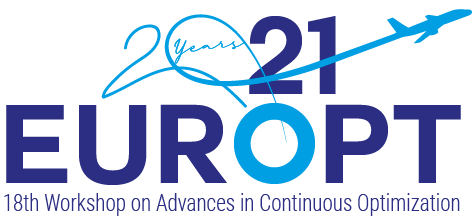TD-03: Advances in Variational Inequalities and Equilibrium Problems
Stream: Variational inequalities, Nash games, game theory, multilevel and dynamic optimization
Room: Nash
Chair(s):
Robert Csetnek
Optimal emergency evacuation with uncertainties
Laura Rosa Maria Scrimali, Georgia Fargetta
Emergency management after crises or natural disasters is a very important issue shared by many countries. In particular, evacuation planning is a complex and challenging process that takes into account several elements. For this reason, optimization tools are fundamental to make policy makers predict or evaluate different disaster scenarios. In this talk, we present an emergency evacuation model where a population has to be evacuated from crisis areas to shelters and propose an optimization formulation for minimizing a combination of the transportation cost and the transportation time. In add
A stochastic variational approach to study economic equilibrium problem under uncertainty
Domenico Scopelliti, Monica Milasi
This talk deals with an economic equilibrium problem under time and uncertainty. We suppose that the market evolves in a finite sequence of time periods; at final date different states of the world can occur. We first reformulate the equilibrium by means of a stochastic quasi-variational inequality. In view of this characterization we can give some qualitative and quantitative properties of equilibrium solutions. Our approach can fit in several decision-making problems where the characteristcs elements are affected by uncertainty.
A variational approach for international human migration networks with and without regulations
Patrizia Daniele, Anna Nagurney
International human migration has transformed economies and societies. The new millennium, with climate change and its impacts, and increasing conflicts and displacements, has experienced a great increase in international migrants, with associated challenges faced by governments. We propose the modeling, analysis, and solution of international human migration problems by developing a network model with and without regulations. The formalism uses the theory of variational inequalities, coupled with Lagrange analysis.
